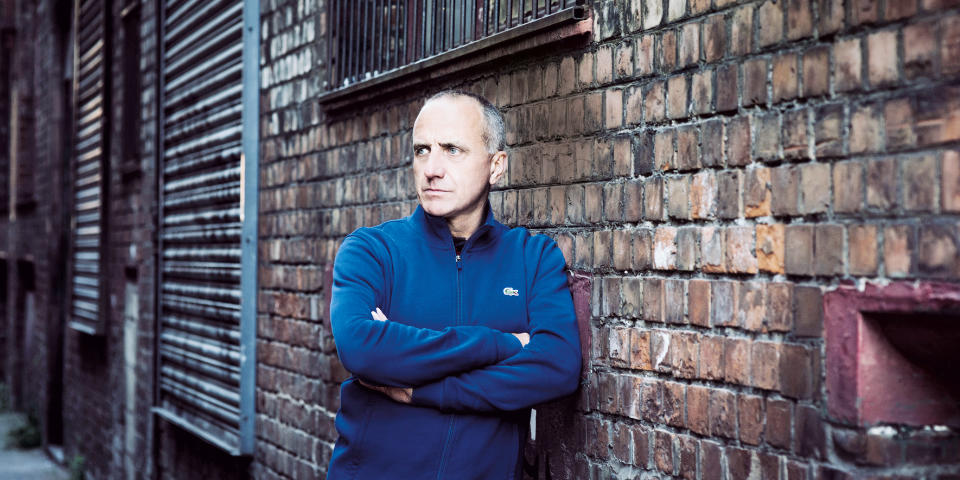A rogues’ gallery of Nazi war criminals turned to Jesus for salvation in the weeks before their deaths, according to an account of the Nuremberg trials that emerged in the wake of Holocaust Memorial Day.
The reports of the likes of Chief of Slave Labour Fritz Sauckel, propaganda chief Hans Fritzsche, Hitler Youth leader Baldur von Schirach and Armaments Minister Albert Speer repenting for their roles in the Holocaust have been uncovered by Jewish Christian writer Charles Gardner.
Better-known figures from the brutal regime such as Rudolf Hess and Hermann Göring still shunned Jesus even at the point of death, reports Gardner in his account of Frederick Grossmith’s book The Cross and the Swastika, but Göring reportedly “sang with gusto” from the front row during 70 church services.
The book, based on the experiences of US Army chaplain Major Henry Gerecke, comes from accounts deemed so sensitive they were censored by the US government for five years.
Gerecke, a 52-year-old Lutheran pastor from St Louis, Missouri, was assigned to the spiritual care of 15 Nazi leaders during the nine-month-long trials of 1945–46. A Roman Catholic colleague had pastoral care over another six on trial at Nuremberg.
Gerecke was reluctant to take on his role; two of his sons were badly injured in World War II and he had to fight a revulsion for the perpetrators of such barbaric war crimes. Eventually he accepted it as a special calling for which he needed a full measure of the grace of Jesus, coming to hate the sin but love the sinner.
According to Gardner, Gerecke “dedicated himself to visiting each of the men in their cell on a regular basis and inviting them to chapel services at which he would preach the gospel of how Jesus died for sinners like them.”
Hess and Göring apart, most of the others gave their lives to Christ.
CHANGED MEN
Gardner reports: “First up was Fritz Sauckel, Chief of Slave Labour, who knelt down at his bedside as he implored Gerecke to read the Scriptures and pray with him. ‘Unafraid and unashamed, he prayed with me at his bedside, generously ending our prayer by saying, ‘God be merciful to me, a sinner’,” the chaplain recalled. He was a changed man and was the first of the prisoners to express a desire for Holy Communion.”
More Nazis followed. “Armed Forces Chief Field Marshal Wilhelm Keitel was next to receive Holy Communion and unashamedly knelt at his bed as he made confession of his sins,” reports Gardner. “In the spring of 1946, Navy Chief Erich Raeder opened his heart to the Lord and, with von Schirach, soon joined Sauckel, Keitel, Fritzsche and Speer at communion, with former Reichsbank President Hjalmar Schacht also added to the believing congregation.
“Baron Constantin von Neurath, who took charge of occupied Czechoslovakia from 1939–41, then admitted his need of salvation.”
Some of Hitler’s henchmen resisted for a little longer, says Gardner. “Foreign Minister Joachim von Ribbentrop held out against the chaplain’s message for most of his incarceration until finally, as judgment day approached, he sought God’s forgiveness and opened his heart to Christ. He was soon transformed from cool indifference to a man of truly sincere Christian faith.
“Von Ribbentrop was first to die. Gerecke recalled how, just before he was led to the gallows, ‘I heard him say that he put all his trust in the blood of the Lamb that takes away the sins of the world.’”
But Göring reportedly “rejected the tearful pleas of his wife and daughter to make his peace with Jesus, and took his own life with poison he had smuggled into his cell despite rigorous and regular searches.”
Gardner adds: “The chaplain had been unable to get close to Wilhelm Frick, Reich Minister of the Interior and Protector of Occupied Czechoslovakia. But just before he was led out to die, he announced: ‘I’ve got something to tell you.’ He said he believed that the blood of Jesus had washed away his sins.
“Hans Frank, Governor-General of Poland, who had returned to the Roman Catholic Church and who satisfied O’Connor with a sincere repentance, thanked the prison colonel for all his kindness, declaring from the scaffold: ‘I pray to God to take my soul. May the Lord receive me mercifully.’”
Not all the war criminals were hanged, and Albert Speer spent 20 years in Spandau Prison, Berlin, during which time he studied 18 large volumes of theology.
Henry Gerecke died on October 11th, 1961, 15 years to the day after arriving in Nuremberg. He was chaplain at Illinois State Penitentiary, where he collapsed at the prison gates on his way to lead a Bible class. The inmates took the news very badly and even the most hardened among them asked to be allowed to see his body one more time. Their request was granted and more than 800 convicts filed past the coffin.



